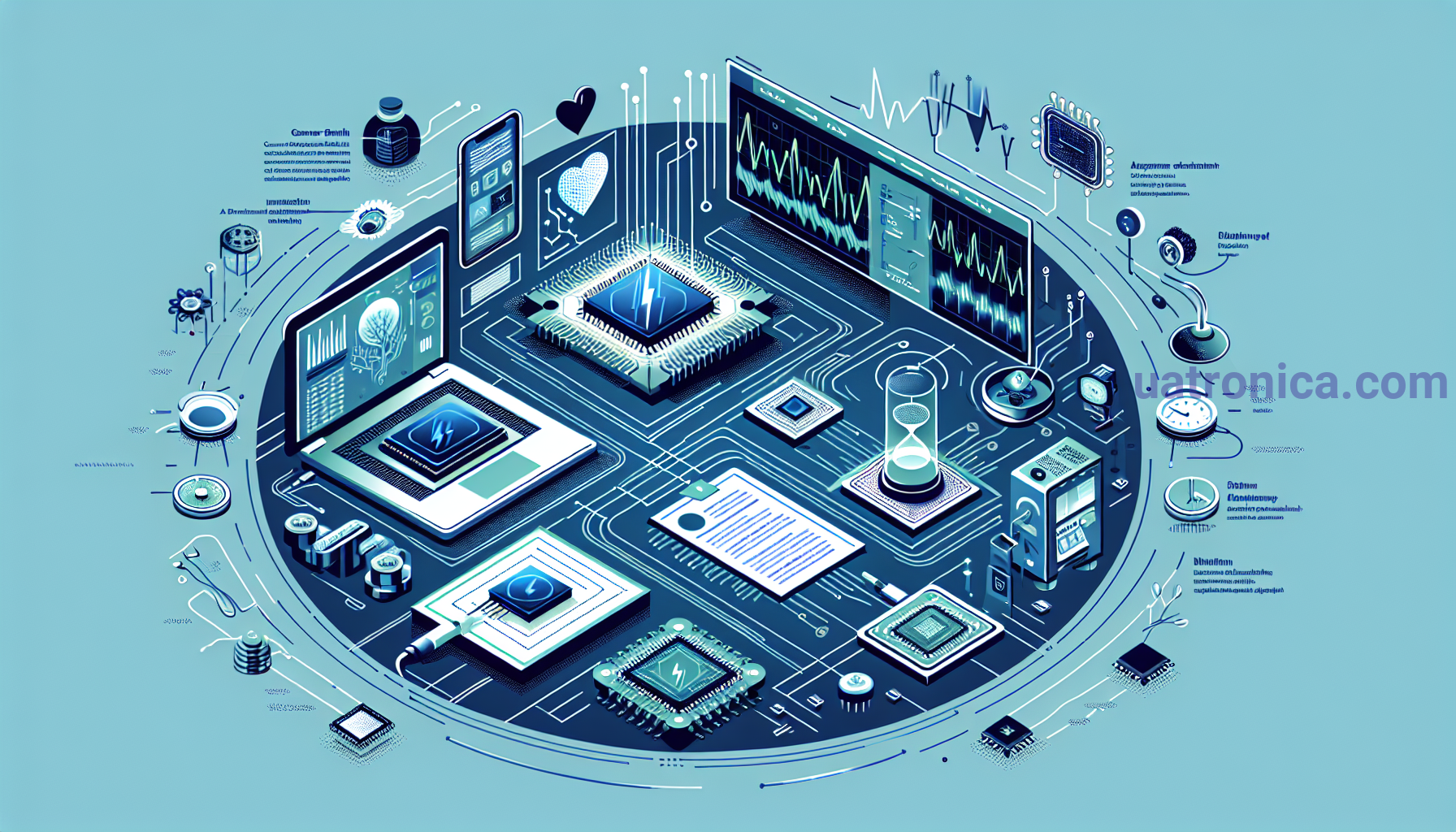[custom_toc]
Recent technological advances in the world of semiconductors and their impact on the future
Semiconductors are materials capable of transmitting electric current with a certain conductivity. Over the past decade, the world has witnessed significant progress in the field of semiconductor technology development. These advances affect various areas of life, including communication technology, electronics, medicine, the automotive industry, and many others. In this article, we will look at the latest technological advances in the world of semiconductors and their impact on the future.
Expanding the boundaries of semiconductor technologies
One of the main trends in the development of semiconductor technologies is the constant reduction in the size of micro- and nanoelectronics elements. With each new generation of processors and microcircuits, the size of transistors decreases, which allows to increase their speed and performance. The introduction of new technological solutions, such as the use of extreme ultraviolet lasers (EUV), allows to obtain more information per crystal paste, which allows to significantly increase the number of elements on the crystal and, accordingly, the speed and performance of semiconductor devices.
Intel is one of the leading manufacturers of processors for PCs and servers. In recent summers, it has developed several generations of products that use nanometer technologies. The most popular processor today is the Intel Core i9 10900K, which was released in 2020. This 10-core processor is capable of running loaded applications and games at high speed on all cores. At the same time, it has low energy consumption and provides high performance even at high loads. The Intel Core i9 10900K processor uses 14-nanometer technology to achieve these impressive performance figures.
The Bluetooth LE SoC combines multiple ARM Cortex-M33 and RISC-V cores
One of the latest technological advances in the world of semiconductors is the development of the Bluetooth LE SoC, which combines multiple ARM Cortex-M33 and RISC-V cores. This system-on-chip (SoC) semiconductor device is used in various IoT devices such as smart sockets, smart lamps, switches and many others.
This Bluetooth LE SoC has low power consumption and high performance, enabling efficient operation of IoT devices. The ARM Cortex-M33 is the first ARMv8-M microcontroller with slightly increased capabilities, and RISC-V is an open source processor architecture that has the potential for a wide range of devices.
This combination of multi-core ARM Cortex-M33 and RISC-V cores allows for high performance and efficient data processing, which is necessary for the operation of Internet of Things devices. This Bluetooth LE SoC will be the basis for the development of new innovative devices that will facilitate our daily lives and contribute to the development of the Internet of Things.
Application of semiconductor technologies in the automotive industry

One of the areas in which semiconductor technology has a great impact is the automotive industry. Thanks to the progress in this field, today we have the opportunity to see cars with a significant number of automated functions, such as safety systems, driver assistants and navigation systems.
One example of the application of semiconductor technology in the automotive industry is safety sensors such as ABS, ESP and tire pressure monitoring systems. These systems ensure the safety of passengers and help avoid accidents. They are used to detect hazards and transmit information to the steering column or to the car's control system. This is an important element of road safety, which ensures the correct reaction of the car to various situations on the road.
Another example of the application of semiconductor technologies is automatic control systems and driver assistants. The artificial intelligence devices used in these systems require significant data processing and selection of the optimal course of action. This is not possible without new semiconductor solutions such as GPUs (graphics processing units) and DSPs (digital signal processors).
Car manufacturers such as Tesla, Audi and BMW are already using semiconductor technology to design their cars of the future. They are working on the introduction of an automatic parking system, a road sign recognition system and an obstacle detection system. The use of semiconductor technologies in these systems allows to ensure high accuracy and reliability of operation, as well as to increase safety on the road.
A little more about Cortex-X4: ARM's most powerful core to date
Cortex-X4 is the latest advancement in semiconductor technology from ARM. It is the most powerful ARM core to date and is designed specifically for high-performance devices such as smartphones and servers.
The Cortex-X4 core has impressive technical characteristics, including a high clock frequency and a large number of cores. This allows you to achieve high data processing speed, which is necessary for the operation of powerful games and other demanding applications.
This kernel is used by companies that develop smartphones such as Samsung and Xiaomi. Smartphones such as the Samsung Galaxy S21 Ultra and Xiaomi Mi 11 use the Cortex-X4 core to ensure maximum performance when running the most demanding applications and games.
The impact of technological advances on the future
Technological advances in the world of semiconductors have a significant impact on the future. Thanks to the constant development of semiconductor technologies, we can expect even more innovative devices and solutions in various areas of life:

- Consumer Electronics: Advances in semiconductor technology will enable the creation of electronic devices with the highest performance and efficiency. We can expect the release of powerful smartphones, laptops, tablets and other devices that will provide benefits for users.
- Medicine: the development of semiconductor technologies allows the creation of new devices for the diagnosis and treatment of various diseases. For example, devices such as electrocardiographs, ultrasound scanners and implants use semiconductors, which allows for high accuracy and speed of operation.
- Electric vehicles: Advances in semiconductor technology are helping to create more efficient and productive batteries for electric vehicles. This will allow to increase their driving range and the development of city structures for electric vehicles.
- Internet of Things: The growth of semiconductor technologies will expand the application of the Internet of Things and improve its efficiency and security. New technologies will enable interaction between various Internet of Things devices and ensure stable communication in real time.
In the world of semiconductor technology, new advances are constantly appearing that help us develop modern society. Thanks to these achievements, we have the opportunity to use more and more innovative devices that make our everyday life easier and improve its quality.
Conclusion
Technological advances in the world of semiconductors have a significant impact on the development of various industries, including communication technology, electronics, medicine and the automotive industry. The development of semiconductor technologies makes it possible to create more powerful and productive devices, ensures high accuracy and speed of data processing, and also facilitates our everyday life.
We expect the further development of semiconductor technologies and the introduction of new innovative devices to the market. This will allow us to ensure the stable and safe functioning of various spheres of life and make our future even more comfortable and efficient.
Sources:
2. Bluetooth LE SoC Combines Multiple ARM Cortex-M33 and RISC-V Cores - Electronic Components News
3. A little more about Cortex-X4: ARM's most powerful core to date - Electronic Components News










